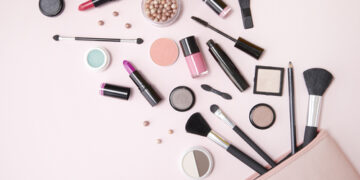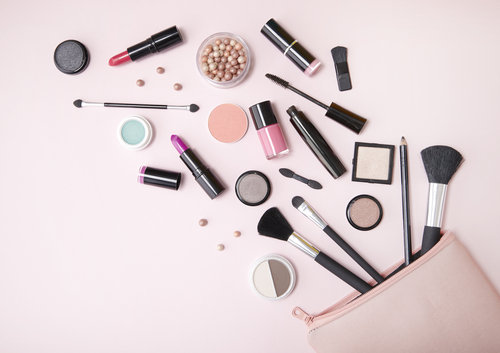The Language of Labels
When I first transitioned from being a makeup artist to a formulator of natural skincare, I found myself overwhelmed by the very language I thought I knew. “Natural,” “organic,” “clean,” “non-toxic,” “green”—these words are splashed across every shelf, every bottle, every glossy advertisement. But what do they truly mean? And more importantly, what do they mean for your skin?
After years of trial, error, and endless ingredient research (often with a cup of herbal tea and a notebook full of scribbles), I’ve come to see that much of beauty marketing is murky. Labels can be vague, unregulated, and designed more to sell than to inform. But once you learn how to read between the lines, you can begin to choose products that genuinely align with your values—and your skin’s needs.
This is your guide through the noise. A gentle unravelling of the beauty industry’s favorite buzzwords, with clarity, care, and a little botanical wisdom along the way.
Ad Banner #1
Placeholder for promotional content or advertisement.
“Natural”: Beautiful but Unclear
The word natural evokes a sense of purity—fields of lavender, handmade soaps, oils pressed under the sun. And yet, the term “natural” is one of the most unregulated in the beauty industry. Brands can use it even if only a fraction of their ingredients are plant-derived. Worse still, synthetic preservatives or artificial fragrances can still hide inside something labeled “natural.”
That doesn’t mean natural is meaningless—but it does mean we need to read ingredient lists carefully.
When I craft a balm or facial oil and call it natural, I mean every single component comes from a plant, seed, flower, or mineral. Cold-pressed oils, steam-distilled essential oils, herb-infused carriers. Nothing more. That’s the kind of natural that speaks to the skin in a language it understands.
Tip: Look for INCI (International Nomenclature of Cosmetic Ingredients) names on the back. If most ingredients are recognizable plant names—like Prunus armeniaca (apricot kernel oil) or Calendula officinalis extract—you’re on the right path.
“Organic”: A Legal Promise
Unlike “natural,” the term organic does have regulatory meaning—at least when accompanied by certification. In the U.S., the USDA Organic seal ensures that ingredients were grown without synthetic pesticides, GMOs, or artificial fertilizers.
In Europe, COSMOS Organic or ECOCERT are widely respected standards, often requiring a percentage of certified organic ingredients and sustainable practices in production.
A product labeled “Made with Organic Ingredients” might only contain 70% organic content, while a fully certified organic product contains 95% or more. The difference matters—not just for skin, but for sustainability, soil health, and ethical sourcing.
Organic products tend to be richer in skin-loving nutrients because they’ve been grown in healthier soil, harvested at peak potency, and processed with minimal interference. You can often feel the difference in texture—silkier oils, richer balms—and smell it in the delicate, earthy aromas that synthetic fragrances can never replicate.
“Clean”: A Philosophy, Not a Regulation
The term clean beauty is newer, trendier, and even more flexible in its interpretation. Most clean beauty brands promise to avoid known toxins, harsh preservatives, synthetic dyes, and artificial fragrance. But since “clean” isn’t legally defined, each brand can decide what it means for them.
Some clean products may still use synthetics that are considered safe and stable—like certain emulsifiers or lab-derived vitamins. Others, like myself, lean into botanical purity—formulating with oils, butters, waxes, and extracts that nourish without fillers.
Clean beauty is a philosophy, not a certification. It often overlaps with natural and organic, but it’s up to you to define what clean means for your body, your beliefs, and your skin.
Tip: Look for brands that publish a full “no list” or explain their clean standards in detail. Transparency is a beautiful thing.
Ad Banner #2
Placeholder for second promotional content or advertisement.
How to Choose Truly Clean Skincare
It can feel overwhelming, but choosing clean skincare becomes intuitive with practice. Here’s how I approach it:
1. Read the ingredient list, not the front label.
The most meaningful information is always on the back. Trust what’s printed in tiny font over bold marketing claims.
2. Less is more.
Fewer ingredients often mean fewer chances for irritation. A facial oil with three high-quality components can be more effective than a cream with 30.
3. Know your skin.
Clean is not one-size-fits-all. Just because something is botanical doesn’t mean it’s right for your unique complexion. Sensitive skin may love chamomile but react to citrus. Dry skin might crave avocado oil but break out with coconut. Listen. Observe. Adjust.
4. Patch test always.
It may sound tedious, but a 24-hour patch test can save your skin a lot of heartache. Your face deserves that kind of care.
Beauty Rooted in Intention
For me, clean beauty isn’t a label—it’s a ritual. It’s standing at my workbench, slowly pouring calendula-infused oil into melted shea butter, watching it swirl like liquid gold. It’s blending just the right amount of lavender for its soft scent and calming touch.
Choosing products that are truly clean, natural, or organic is a way of saying: I deserve ingredients that honor my body. My skin deserves peace, not confusion.
In a world of over-promising products, returning to the essence of beauty—plant-based, intentional, kind—is revolutionary. And your skin will thank you, not with perfection, but with balance, softness, and that unmistakable glow of being well cared for.
























